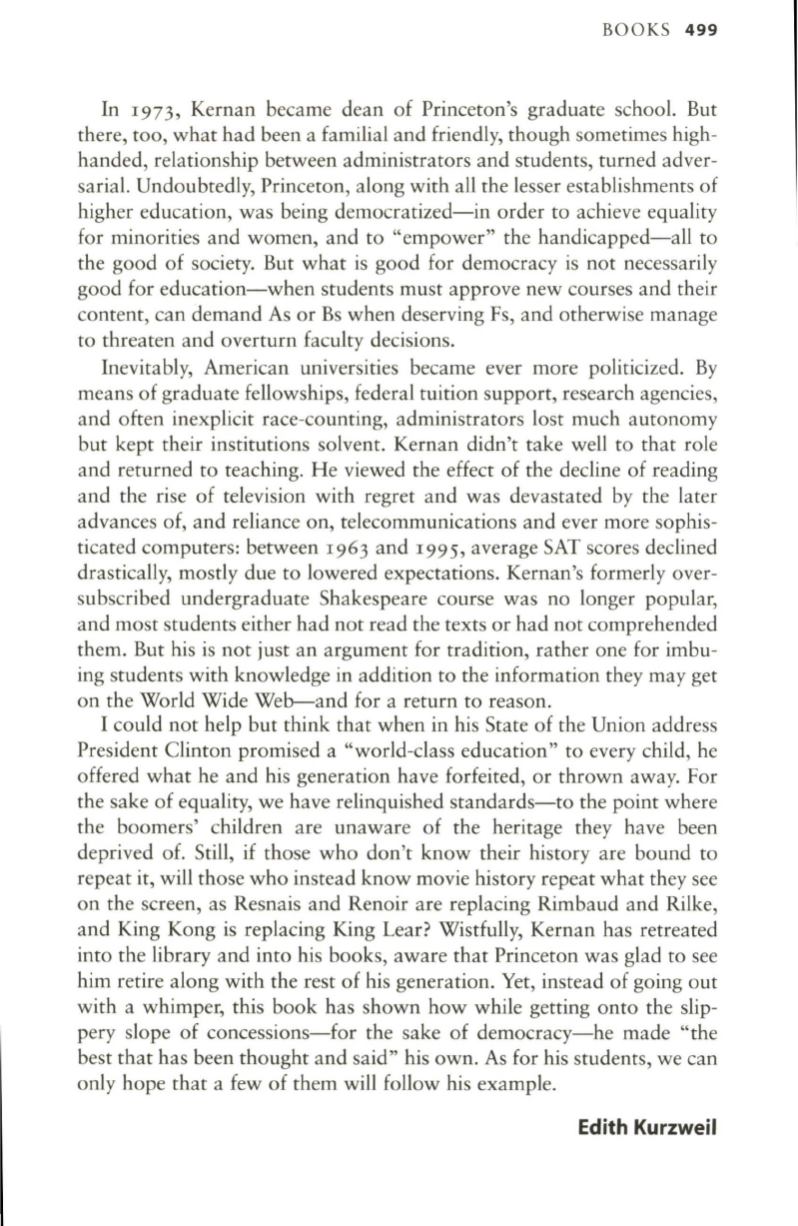
BOOKS
499
In
1973,
Kernan became dean of Princeton's graduate school. But
there, too, what had been a familial and friendly, though sometimes high–
handed, relationship between administrators and students, turned adver–
sarial. Undoubtedly, Princeton, along with all the lesser establishments of
higher education, was being democratized-in order to achieve equality
for minorities and women, and to "empower" the handicapped-all to
the good of society. But what is good for democracy is not necessarily
good for education-when students must approve new courses and their
content, can demand As or Bs when deserving Fs, and otherwise manage
to threaten and overturn faculty decisions.
Inevitably, American universities became ever more politicized. By
means of graduate fellowships, federal tuition support, research agencies,
and often inexplicit race-counting, administrators lost much autonomy
but kept their institutions solvent. Kernan didn't take well to that role
and returned to teaching. He viewed the effect of the decline of reading
and the rise of television with regret and was devastated by the later
advances of, and reliance on, telecommunications and ever more sophis–
ticated computers: between
1963
and
1995,
average SAT scores declined
drastically, mostly due to lowered expectations. Kernan's formerly over–
subscribed undergraduate Shakespeare course was no longer popular,
and most students either had not read the texts or had not comprehended
them. But his is not just an argument for tradition, rather one for imbu–
ing students with knowledge in addition to the information they may get
on the World Wide Web-and for a return to reason.
I could not help but think that when in his State of the Union address
President Clinton promised a "world-class education" to every child, he
offered what he and his generation have forfeited, or thrown away. For
the sake of equality, we have relinquished standards-to the point where
the boomers' children are unaware of the heritage they have been
deprived of. Still, if those who don't know their history are bound to
repeat it, will those who instead know movie history repeat what they see
on the screen, as Resnais and Renoir are replacing Rimbaud and Rilke,
and King Kong is replacing King Lear? Wistfully, Kernan has retreated
into the library and into his books, aware that Princeton was glad to see
him retire along with the rest of his generation. Yet, instead of going out
with a whimper, this book has shown how while getting onto the slip–
pery slope of concessions-for the sake of democracy-he made "the
best that has been thought and said" his own. As for his students, we can
only hope that a few of them will follow his example.
Edith Kurzweil


